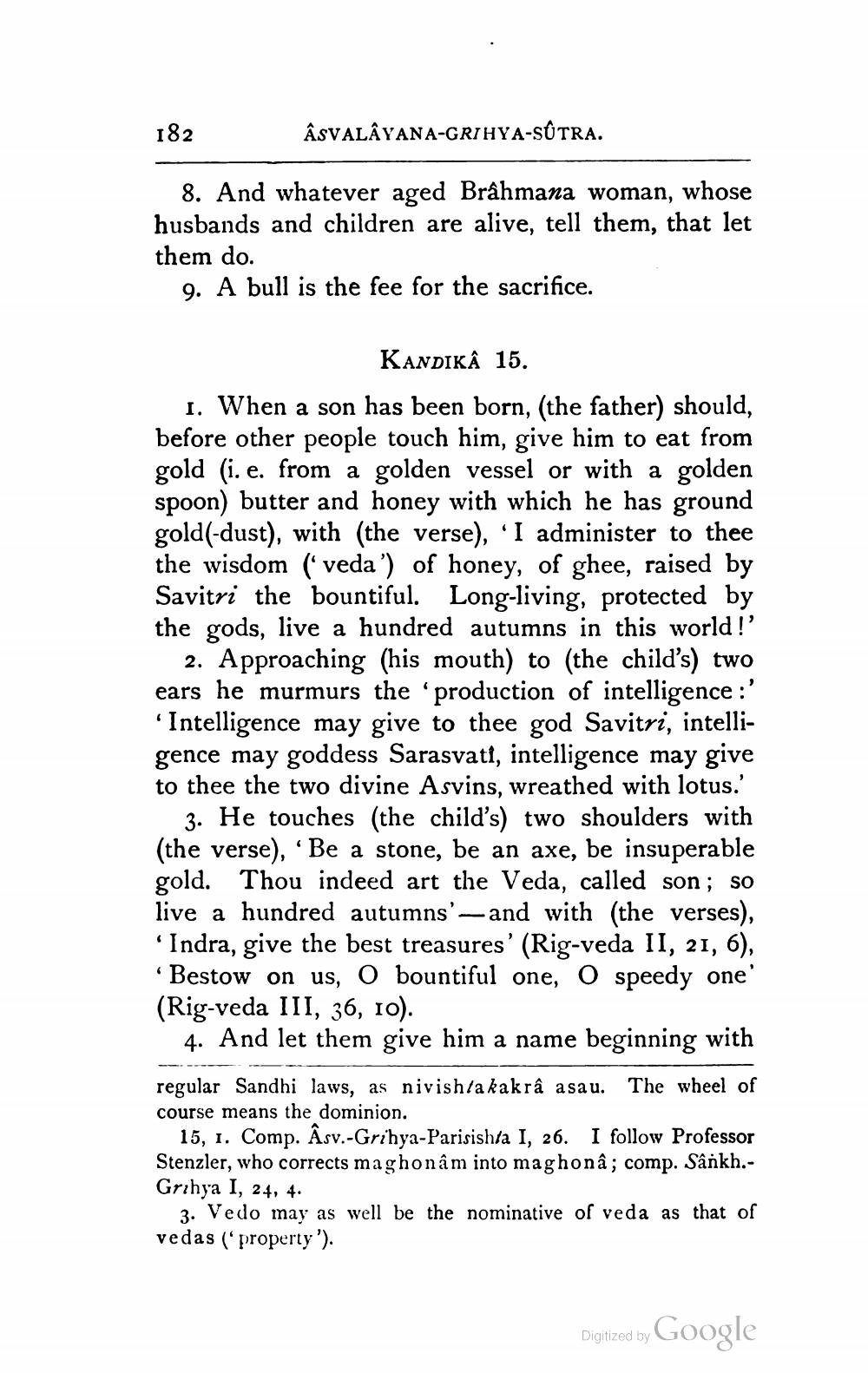________________
182
ÂSVALAYANA-GRIHYA-SÛTRA.
8. And whatever aged Brâhmana woman, whose husbands and children are alive, tell them, that let them do.
9. A bull is the fee for the sacrifice.
KANDIKA 15.
I. When a son has been born, (the father) should, before other people touch him, give him to eat from gold (i. e. from a golden vessel or with a golden spoon) butter and honey with which he has ground gold(-dust), with (the verse), 'I administer to thee the wisdom (veda') of honey, of ghee, raised by Savitri the bountiful. Long-living, protected by the gods, live a hundred autumns in this world!'
2. Approaching (his mouth) to (the child's) two ears he murmurs the 'production of intelligence:' 'Intelligence may give to thee god Savitri, intelligence may goddess Sarasvati, intelligence may give to thee the two divine Asvins, wreathed with lotus.'
3. He touches (the child's) two shoulders with (the verse), 'Be a stone, be an axe, be insuperable gold. Thou indeed art the Veda, called son; so live a hundred autumns'—and with (the verses), 'Indra, give the best treasures' (Rig-veda II, 21, 6), Bestow on us, O bountiful one, O speedy one' (Rig-veda III, 36, 10).
(
4. And let them give him a name beginning with regular Sandhi laws, as nivish/akakrâ asau. The wheel of course means the dominion.
15, I. Comp. Asv.-Grihya-Parisishta I, 26. I follow Professor Stenzler, who corrects maghonâm into maghonâ; comp. Sânkh.Grihya I, 24, 4.
3. Vedo may as well be the nominative of veda as that of vedas (property').
"
Digitized by Google




